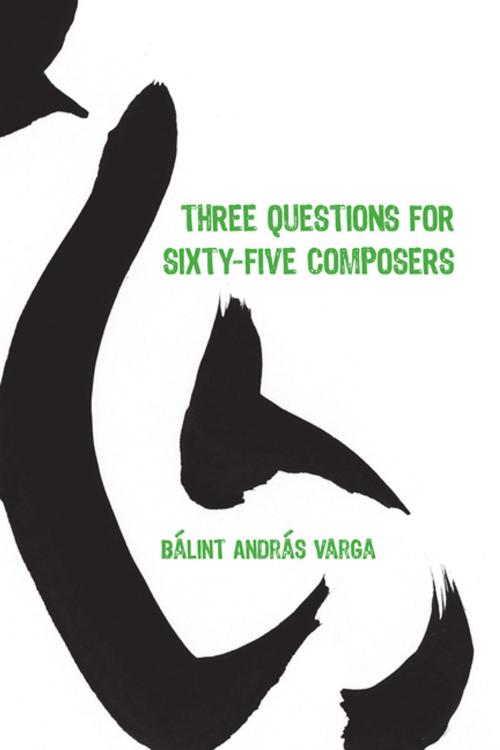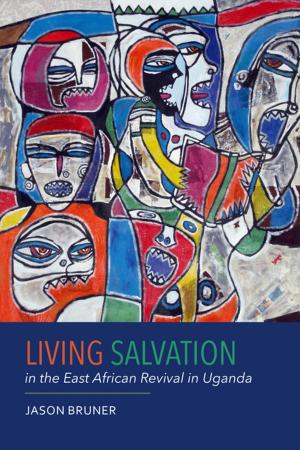Three Questions for Sixty-Five Composers
Nonfiction, Entertainment, Music, Theory & Criticism, History & Criticism, Reference| Author: | Bálint András Varga | ISBN: | 9781580468091 |
| Publisher: | Boydell & Brewer | Publication: | April 1, 2015 |
| Imprint: | University of Rochester Press | Language: | English |
| Author: | Bálint András Varga |
| ISBN: | 9781580468091 |
| Publisher: | Boydell & Brewer |
| Publication: | April 1, 2015 |
| Imprint: | University of Rochester Press |
| Language: | English |
Do today's composers draw inspiration from life experiences or from, say, the natural world? What influences, past and present, have influenced recent composers? How essential is it for a composer to develop a personal style, and when does this degenerate into self-repetition? These are questions about which some of the most important composers of the late twentieth and early twenty-first century often have quite strong feelings--but have seldom been asked. In this pathbreaking book, Bálint András Varga puts these three questions to such renowned composers as Luciano Berio, Pierre Boulez, Alberto Ginastera, Sofia Gubaidulina, Hans Werner Henze, Helmut Lachenmann, György Ligeti, Witold Lutoslawski, Luigi Nono, Krzysztof Penderecki, Wolfgang Rihm, Karlheinz Stockhausen, Toru Takemitsu, and Iannis Xenakis. Varga's sensitive English renderings capture the subtleties of their sometimes confident, sometimes hesitant, answers. All statements from English-speaking composers -- such as Milton Babbitt, John Cage, Elliott Carter, Sir Peter Maxwell Davies, Morton Feldman, Lukas Foss, Steve Reich, Gunther Schuller, and Sir Michael Tippett -- consist of the composers' own carefully chosen words. Three Questions for Sixty-Five Composers is vital reading for anybody interested in the current state of music and the arts. The Hungarian music publisher Bálint András Varga has spent nearly forty years working for and with composers. He has published several books, including extensive interviews with Lutoslawski, Berio, and Xenakis. His previous book for the University of Rochester Press is György Kurtág: Three Interviews and Ligeti Homages.
Do today's composers draw inspiration from life experiences or from, say, the natural world? What influences, past and present, have influenced recent composers? How essential is it for a composer to develop a personal style, and when does this degenerate into self-repetition? These are questions about which some of the most important composers of the late twentieth and early twenty-first century often have quite strong feelings--but have seldom been asked. In this pathbreaking book, Bálint András Varga puts these three questions to such renowned composers as Luciano Berio, Pierre Boulez, Alberto Ginastera, Sofia Gubaidulina, Hans Werner Henze, Helmut Lachenmann, György Ligeti, Witold Lutoslawski, Luigi Nono, Krzysztof Penderecki, Wolfgang Rihm, Karlheinz Stockhausen, Toru Takemitsu, and Iannis Xenakis. Varga's sensitive English renderings capture the subtleties of their sometimes confident, sometimes hesitant, answers. All statements from English-speaking composers -- such as Milton Babbitt, John Cage, Elliott Carter, Sir Peter Maxwell Davies, Morton Feldman, Lukas Foss, Steve Reich, Gunther Schuller, and Sir Michael Tippett -- consist of the composers' own carefully chosen words. Three Questions for Sixty-Five Composers is vital reading for anybody interested in the current state of music and the arts. The Hungarian music publisher Bálint András Varga has spent nearly forty years working for and with composers. He has published several books, including extensive interviews with Lutoslawski, Berio, and Xenakis. His previous book for the University of Rochester Press is György Kurtág: Three Interviews and Ligeti Homages.















